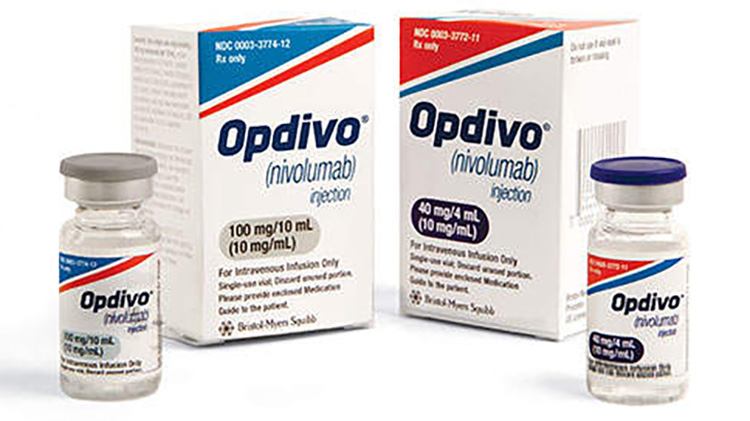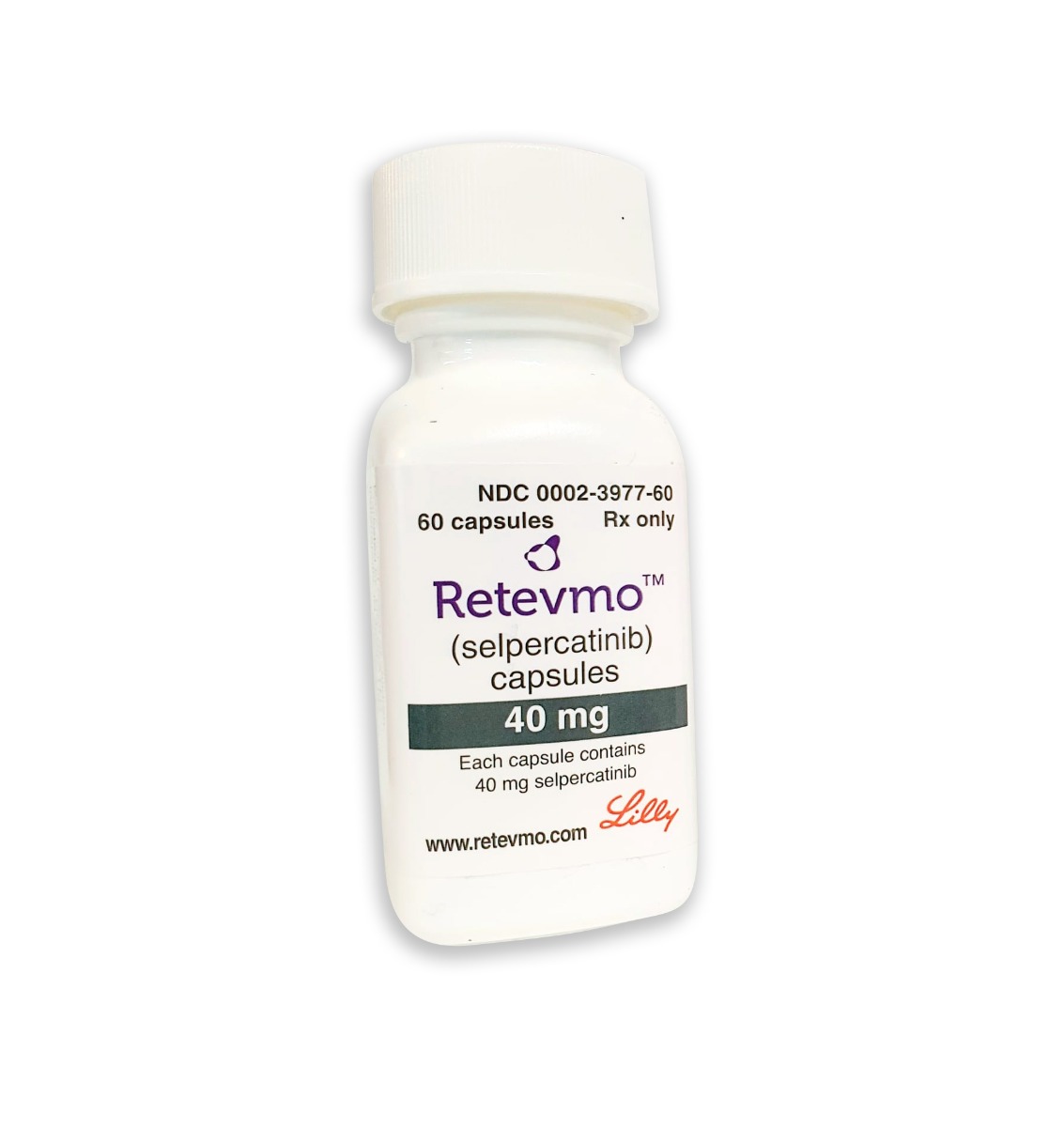Opdivo (Nivolumab) vs Retsevmo (selpercatinib)
Opdivo (Nivolumab) vs Retsevmo (selpercatinib)
Opdivo (nivolumab) is an immune checkpoint inhibitor designed to enhance the body's immune response against cancer cells by blocking the PD-1 protein on T cells, and it is commonly used in various types of cancers, including melanoma, lung cancer, and kidney cancer. Retsevmo (selpercatinib), on the other hand, is a targeted therapy that specifically inhibits RET proteins, which are involved in cell growth and survival, and is used for cancers that have RET gene alterations, such as certain types of thyroid and lung cancers. The choice between Opdivo and Retsevmo would largely depend on the specific genetic characteristics of the cancer; a healthcare provider would likely recommend genetic testing to determine if the cancer has the specific mutations that Retsevmo targets, or if a broader immunotherapy approach with Opdivo is more appropriate.
Difference between Opdivo and Retsevmo
| Metric | Opdivo (Nivolumab) | Retsevmo (selpercatinib) |
|---|---|---|
| Generic name | Nivolumab | Selpercatinib |
| Indications | Various types of cancers including melanoma, lung cancer, kidney cancer, bladder cancer, head and neck cancer, and more | RET-altered thyroid cancers and non-small cell lung cancer |
| Mechanism of action | PD-1 inhibitor that enhances T-cell response against cancer cells | RET kinase inhibitor that blocks tumor cell proliferation |
| Brand names | Opdivo | Retsevmo |
| Administrative route | Intravenous infusion | Oral |
| Side effects | Fatigue, rash, musculoskeletal pain, pruritus, diarrhea, nausea, and more | Increased AST/ALT, increased blood glucose, decreased leukocytes, hypertension, fatigue, edema, and more |
| Contraindications | None known beyond hypersensitivity to nivolumab or its excipients | None known beyond hypersensitivity to selpercatinib or its excipients |
| Drug class | Monoclonal antibody, Immune checkpoint inhibitor | Kinase inhibitor |
| Manufacturer | Bristol-Myers Squibb | Eli Lilly and Company |
Efficacy
Opdivo (Nivolumab) in Lung Cancer Treatment
Opdivo, known generically as nivolumab, is a medication that has been approved for the treatment of several types of cancer, including lung cancer. Specifically, it is indicated for the treatment of patients with metastatic non-small cell lung cancer (NSCLC) with progression on or after platinum-based chemotherapy. Nivolumab is a type of immunotherapy that works by inhibiting the programmed death-1 (PD-1) pathway, thereby enhancing the immune system's ability to fight cancer cells. Clinical trials have demonstrated that nivolumab can significantly improve overall survival in patients with NSCLC compared to traditional chemotherapy. The efficacy of nivolumab in lung cancer treatment has made it a valuable option in the oncologist's arsenal, particularly for those with advanced disease.
Retsevmo (Selpercatinib) Targeting Specific Genetic Mutations
Retsevmo, with the generic name selpercatinib, is a relatively new medication approved for the treatment of lung cancer patients with a specific genetic alteration known as RET (rearranged during transfection) gene mutations. This medication is a kinase inhibitor that specifically targets RET-driven cancers, including NSCLC with RET fusion-positive tumors. Clinical trials have shown that selpercatinib is highly effective in shrinking tumors in patients with RET fusion-positive NSCLC. The approval of Retsevmo has been a significant step forward for precision medicine, as it offers a tailored treatment approach for patients with this particular genetic makeup, which is less responsive to conventional chemotherapy.
Comparing Efficacy in Lung Cancer Treatment
When comparing the efficacy of Opdivo and Retsevmo in lung cancer treatment, it is important to consider the specific patient populations for which these drugs are intended. Opdivo is used more broadly in NSCLC patients who have experienced disease progression after chemotherapy, regardless of their genetic mutation status. In contrast, Retsevmo is specifically designed for a subset of patients with RET fusion-positive NSCLC. Both drugs have shown significant efficacy in their respective indications, with Opdivo improving overall survival and Retsevmo showing high response rates and durable responses in patients with RET-driven tumors.
Conclusion
In conclusion, both Opdivo and Retsevmo have brought advancements in the treatment of lung cancer. Opdivo's role in enhancing the immune response against cancer cells has been a game-changer for many patients with NSCLC. Meanwhile, Retsevmo's targeted approach for RET fusion-positive lung cancer represents a leap forward in personalized medicine. The efficacy of these medications underscores the importance of understanding the molecular profile of lung cancer in each patient, allowing for more effective and individualized treatment strategies. As research continues, these treatments may be further refined to improve outcomes for patients with lung cancer.
Regulatory Agency Approvals
Opdivo
-
European Medical Agency (EMA), European Union

-
Food and Drug Administration (FDA), USA

-
Health Canada

-
Pharmaceuticals and Medical Devices Agency (PMDA), Japan

-
Therapeutic Goods Administration (TGA), Australia

-
Medsafe (NZ)

Retsevmo
-
European Medical Agency (EMA), European Union

-
Food and Drug Administration (FDA), USA

Access Opdivo or Retsevmo today
If Opdivo or Retsevmo are not approved or available in your country (e.g. due to supply issues), you can access them via Everyone.org.
How it works

Make an enquiry
Choose the medicine you want to buy, answer a couple of questions, and upload your prescription to speed things up. We’ll get back to you within 24 hours.


Make an enquiry
Choose the medicine you want to buy, answer a couple of questions, and upload your prescription to speed things up. We’ll get back to you within 24 hours.


Breeze through the paperwork
We'll guide you through the required documents for importing unapproved medicine, ensuring you have all the necessary information.


Get a personalized quote
We’ll prepare a quote for you, including medicine costs and any shipping, administrative, or import fees that may apply.


Receive your medicine
Accept the quote and we’ll handle the rest - sourcing and safely delivering your medicine.

Some text on this page has been automatically generated. Speak to your physician before you start a new treatment or medication.
Let's talk
If you have any questions, call us or send us a message through WhatsApp or email:
Contact us




